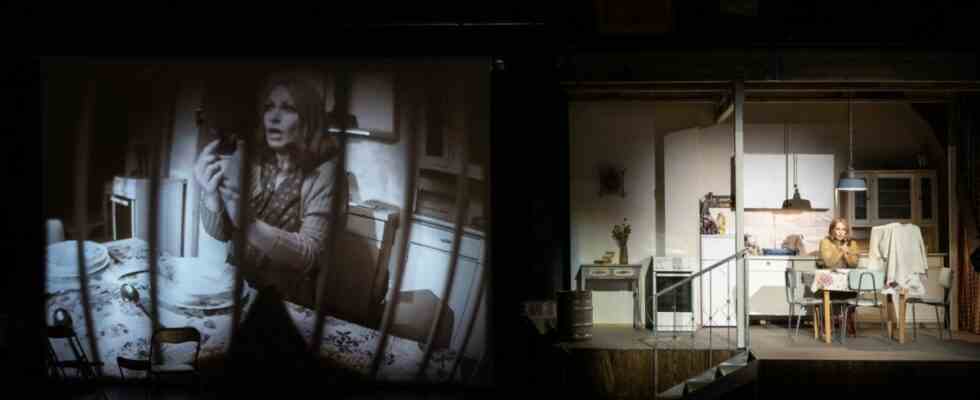Drum rolls sound left and right from the ditch, then the ORF radio symphony orchestra starts, exuberant, great, dense and dark, but at the same time filigree. Antonino Fogliani conducts with glorious exuberance, which will continue throughout the three and a half hours of the performance. But first the overture, the only thing that is known from this opera, because as a concert piece it has a life of its own. Gioachino Rossini’s “La gazza ladra” – “The Thieving Magpie” was a huge success when it premiered in 1817, but disappeared from the stage a few decades later. Attempts at a renaissance in the second half of the 20th century produced some successes, albeit hardly any breakthroughs. Rossini is extremely interesting here, by no means as ostensibly funny as in his comic hits, but never entirely serious. This opera is a “semiseria”, it is serious and funny at the same time, almost at every moment. The emotional states float here, the music is amazingly symphonic and at the end there is a funeral march that easily serves as the sound of all funeral scenes in all mafia films.
At the same time, the action in the fabulous ensemble and tableau scenes keeps coming to a standstill. The actual plot is superficially outrageous, albeit metaphorical in a deeper sense. If you want to make an opera whose implementation is a challenge, then you have been asking Tobias scratches for a number of years. The man has had a cult following since his Bayreuth road movie “Tannhäuser” at the latest, but even before that he had proven several times that he was able to narrate impossible operatic material in a meaningful way, if necessary by shifting it to other contexts, but always very precisely. By his standards, however, he is now almost shy at the Theater an der Wien. Which doesn’t mean that he didn’t deliver an exciting production. One that looks like neo-operatic verismo.
Briefly the plot: Lucia and Fabrizio are happy about the return of their son Giannetto from the war, their maid Ninetta does the same. The young people want to get married, but then Ninetta is accused of stealing a silver spoon from Lucia’s beloved cutlery box. The local Podestà, himself keen on Ninetta, now wants to use force to force her to love, she remains stubborn, protects her father, a wandering deserter, in the end both are to be executed (because of a silver spoon!), but it all turns out well, the It was magpie. Around it there is still an abundance of figures, plastic miniatures, all in love or entrusted with smaller dramaturgical functions.
Now in the Museumsquartier, alternative venue of the Theater an der Wien, which is being renovated for at least two years, you can see a two-story building by Rainer Sellmaier, half courtyard, half house, lovingly built in a naturalistic way down to the last detail. In the middle now and then a screen on which you can see what the magpie sees. For the overture, she flies over the countryside, over sleepy villages – Manuel Braun and Jonas Dahl were shooting in Romania – collecting keys and stealing grave decorations. Finally you see her herself, she sits in her cage and looks into a mirror. And at the very end, a big joke: The theft of the famous Saliera, a ceremonial salt barrel, from the Kunsthistorisches Museum in Vienna in 2003 (it’s been back for a long time now), is cleared up, it was the magpie.
Scratches tells the story today, in a country where power and order are eroding. During the overture, soldiers plunder the kitchen, Lucia fears that she will be raped, the Podestà is a provincial mafia boss with a big Mercedes, law seems fundamentally negotiable. The Theater an der Wien is now a stagione operation without its own ensemble, and the cast is carefully selected for each production. The Arnold Schönberg Choir, Marina de Liso (Lucia), Maxim Mironov (Giannetto), Fabio Capitanucci (Fabrizio) and all the others sing and play as if they had inhaled Kratz’s idea of high-lived, truthful play. Nino Machaidze matches them in the game; as Ninetta she is the main character, laden with a heavy, overly expressive voice – she is the dark side of the lighthearted game.

